The last post was discussing chapters and letting them sit for some time before the final editing process. In my final chapter I came across this line:
editing
Editing is Like Rotating Wine Bottles in a Cellar
 There is much debate and mystery to the idea of having to turn wine bottles to improve their flavour and consistency.
There is much debate and mystery to the idea of having to turn wine bottles to improve their flavour and consistency.
My book has 86 chapters and I look on each one as a bottle of wine, lying on shelves in a cellar. And each, like a good wine, needs to be left to age, then turned from time to time. I have left the ageing process alone and now feel that I am in the final stages of turning each bottle – that is, carefully editing each chapter and checking that it is ready for publication. I hope that when it is, it will taste and feel special to my readers, with no wasted words or any sentences that fail to support the “label”. Which segues nicely to the role of wine in my new book. Wine does indeed have a place or two, but only when characters meet. Of course, too much wine can lead to problems and this may well happen to one or two of my characters. All will be revealed in due course.
Editing for Incremental Improvement
 “Incremental improvement means taking small steps consistently. This can lead to massive growth and change.” I share this to explain what I am doing, as a writer, to improve my book each day until it gets published. My recent editing has been taking time to make small changes to improve each paragraph, page and chapter. But, and it’s a big but, I have to do this consistently in order to see the results. I just hope my readers do too :-).
“Incremental improvement means taking small steps consistently. This can lead to massive growth and change.” I share this to explain what I am doing, as a writer, to improve my book each day until it gets published. My recent editing has been taking time to make small changes to improve each paragraph, page and chapter. But, and it’s a big but, I have to do this consistently in order to see the results. I just hope my readers do too :-).
Ruminate
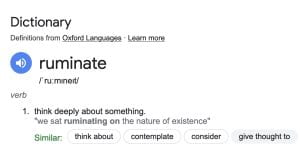
 When writing, the plot and characters are uppermost in my mind. It’s a subconscious thing and I find myself thinking about events in my novel while drifting off to sleep, only to have them punctuated by fresh thoughts. These make me force myself awake and make the necessary changes while they are fresh – “I’ll forget them in the morning,” I tell myself. There a catch though. In the morning, have to check that the new thought fits the storyline and doesn’t detract from it or overwhelm it; it has to enhance it to be effective. Ah the joys of ruminating – just going over and over my novel, like cows chewing grass:
When writing, the plot and characters are uppermost in my mind. It’s a subconscious thing and I find myself thinking about events in my novel while drifting off to sleep, only to have them punctuated by fresh thoughts. These make me force myself awake and make the necessary changes while they are fresh – “I’ll forget them in the morning,” I tell myself. There a catch though. In the morning, have to check that the new thought fits the storyline and doesn’t detract from it or overwhelm it; it has to enhance it to be effective. Ah the joys of ruminating – just going over and over my novel, like cows chewing grass:
The Pitch
The Pitch is a snazzy one liner that sums up a novel’s theme. My pitch changed while editing and my professional editor (ex Penguin Publishing) helped shape it into:
Can Artificial Intelligence topple the global economy or restore financial equality? Depends whose side you’re on…
Perhaps our global issue is not Big Brother organisations, but the machines they are building? Food for literary thought.
The Perfect Edit
It’s poetic how some things work out. After months of editing and revising my manuscript, look how many words it ended up…
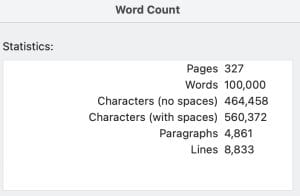
Yes, some will say it’s too long for a heist-thriller and others will disagree and say they need detail and back story to really get into a novel. For me, it was just where it ended up and, for that reason, it feels right. My first thriller was finished at around 85,000 words but my new one – with the extra words – does seem to have more depth and purpose. I hope readers agree. Hint: do you want to learn about the role of AI in the greatest bank robbery of all time?
George Saunders: On the Tricks of the Writing Process
A Professional Editor?
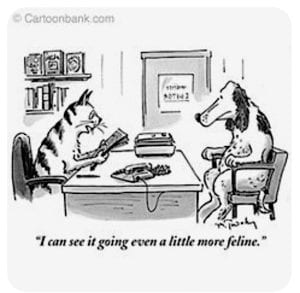 What value do I place on a professional editor? HEAPS!
What value do I place on a professional editor? HEAPS!
I value any feedback from readers, but place high value on corrects and suggestions from a professional editor—one who is connected with publishing and knows what to look for in a ‘good read.’ I have used the same editor for my partial reviews, synopsis and query letter and her ideas on my plot and characters has given me insights that I missed. The edits have also allowed me to correct weaknesses quickly and the end result is a far more polished manuscript. I don’t always agree with the suggested corrections, but use them to improve the areas noted. Above all, having a professional (paid) editor gives me encouragement as a writer and, I must confess that without her, I would have given up long ago. Here are a couple of feedback examples:
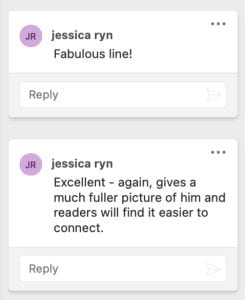
Excellence vs Perfection in Writing
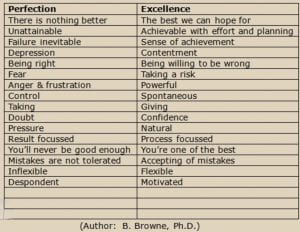 Hello again. I was discussing some of the presentations at a recent writers conference with a good friend who attended. He brought up the notion of perfection in writing vs excellence. The aim was to have writers concentrate on excellence and not try to be perfectionists. Writers should feel safe to make mistakes and be innovative. Which then begs the question, what is excellence in writing? I’m not a 100% sure myself. Some say it’s the point where you cannot improve on the story, plot, characters, etc. I agree, but I’m going to stick my writer’s neck out and also suggest that the manuscript being submitted needs to be free of obvious errors, grammatical mistakes, etc. If it isn’t it will be a turn-off for any literary agent or, in the case of self-published work, a negative experience for the reader.
Hello again. I was discussing some of the presentations at a recent writers conference with a good friend who attended. He brought up the notion of perfection in writing vs excellence. The aim was to have writers concentrate on excellence and not try to be perfectionists. Writers should feel safe to make mistakes and be innovative. Which then begs the question, what is excellence in writing? I’m not a 100% sure myself. Some say it’s the point where you cannot improve on the story, plot, characters, etc. I agree, but I’m going to stick my writer’s neck out and also suggest that the manuscript being submitted needs to be free of obvious errors, grammatical mistakes, etc. If it isn’t it will be a turn-off for any literary agent or, in the case of self-published work, a negative experience for the reader.
Beta Readers are like Gold
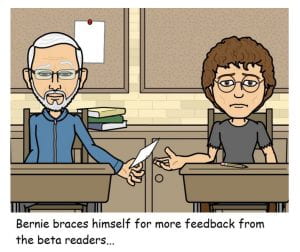 I value my Beta Readers. Like gold, they shine bright and their feedback is invaluable. A keen reader of thrillers – who has devoured over 30 books this year so far – has just finished my book. He was tasked with general feedback, rather than detailed analysis. The golden nugget for me was his comment that he felt the story only got flowing with the submarine action. This got me thinking about the sequence of chapters and made me realise that I could bring the underwater action forward. After some heavy cut-and-paste, this action now begins at Chapter 3 and the story is better paced and more engaging. My reader made a few other passing comments which has led to further tweaks and a better novel. This one made me smile;
I value my Beta Readers. Like gold, they shine bright and their feedback is invaluable. A keen reader of thrillers – who has devoured over 30 books this year so far – has just finished my book. He was tasked with general feedback, rather than detailed analysis. The golden nugget for me was his comment that he felt the story only got flowing with the submarine action. This got me thinking about the sequence of chapters and made me realise that I could bring the underwater action forward. After some heavy cut-and-paste, this action now begins at Chapter 3 and the story is better paced and more engaging. My reader made a few other passing comments which has led to further tweaks and a better novel. This one made me smile;
“I had a feeling that the story was going to end with a twist and it was a good one.”
Conclusion? Beta Readers are like gold!
Here is an easy guide for Beta Readers:
- Identify characters who are not engaging so I can strengthen or remove them.
- Identify anything that’s confusing (chapters, paragraphs, or dialog).
- Evaluate Plot and Pace: was the book a “good read” that kept you engaged and wanting more? If not, what parts lacked engagement?
- Finally, the ending: was it OK? Unexpected? Can you think of a better one?
- Would you tell your friends about this book after having read it?
